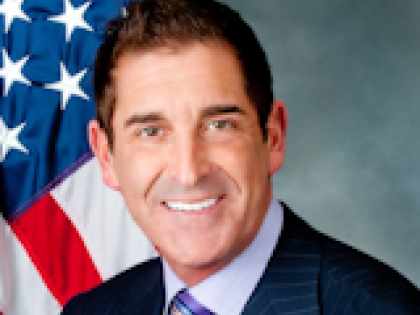
Solving Crimes and Saving Lives
Jeffrey D. Klein
July 1, 2010
Senate Passes Klein Bill to Collect DNA Upon Felony Arrest on 3rd Anniversary of Murder of Syracuse Woman
State Senator and Deputy Majority Leader Jeff Klein (D-Bronx/Westchester) announced Thursday that the NYS Senate passed his legislation mandating DNA collection upon arrest in an effort to put more criminals behind bars before they strike again. The announcement comes on the third anniversary of the tragic death of Syracuse resident Carol Nelson. On July 1, 2007, Nelson was brutally raped and murdered by a man who could have been behind bars had DNA been collected at the time of his 2006 arrest for rape.
“As thousands of crime scenes remain unsolved across New York State, dangerous predators remain on the loose and hundreds of victims and their families wait for justice. Simply put, DNA is the fingerprint of the twenty-first century, with DNA collection upon arrest we are one step closer to catching the worst criminals before they can strike again. I strongly urge the Assembly to pass this bill immediately,” said State Senator and Deputy Majority Leader Jeffrey D. Klein (D-Bronx/Westchester).
Klein’s “DNA upon Arrest” bill (S.6213/NYS Assembly same-as A.9425/Morelle) would require New York State and City law enforcement agencies to collect DNA upon arrest for 67 felony crimes, including assault, murder, manslaughter, rape, sexual abuse, arson, burglary, robbery and incest. In May, Senator Klein joined Assemblymember Joseph Morelle (D- Irondequoit), representatives from the New York State Sheriffs' Association, the Center for HOPE, and victims’ rights advocates to call for passage of this important legislation.
Currently NYS only requires DNA collection after a judge convicts a suspect of a felony crime or 18 specified misdemeanors. Once the DNA sample is collected, the information goes into a statewide DNA databank that also connects to a national databank. The statewide databank contains two types of samples - forensic DNA samples taken from a crime scene and samples taken from criminals after a conviction.
The NYS DNA databank launched in 1996. In 2006, NYS passed a law requiring DNA collection for all felony convicts, expanding the databank tremendously. From 1996 to the end of 2007, the program put a name and face to more than four thousand (4,142) crime scene DNA samples. Nearly one-third of those hits came in 2007, the first year after the DNA felony collection law was passed.
Klein’s legislation would increase the pool of offenders in the NYS DNA Databank. As witnessed when the pool was expanded in 2006, the more suspects added to the databank, the more matches that are likely to occur and thus the more crimes that can be solved. Under this bill DNA would be taken at the same time the arrestee is fingerprinted.
Klein’s bill would also help catch repeat offenders more quickly. According to the NYS Department of Criminal Justice Services (DCJS), on average, offenders linked to crimes on the DNA databank had approximately 11 prior arrests and five prior convictions. Eighty-three percent of offenders linked to sexual assault cases were in the state’s DNA databank for a crime other than a sex-related offense. Under Klein’s bill, should an individual not be convicted, they could request the purging of their DNA sample from the database.
As of April 2010, there were 31,559 forensic samples in the NYS DNA Database taken from crime scenes throughout the state, amounting to nearly tens of thousands of unsolved crime scenes in New York State. While New York represents more than 10% of all of the unsolved crime scenes in the United States, however, its database contains only about 4.5% of all DNA profiles in the United States.
Twenty-one states have already passed DNA upon arrest legislation including Alaska, Arizona, California, Kansas, Maryland, Michigan, Minnesota, New Mexico, North Dakota, South Dakota, Tennessee, Texas, and South Carolina. DNA upon arrest bills are currently pending in several other states including North Carolina, Ohio, and Pennsylvania. Federal law also allows for DNA collection upon arrest.
Share this Article or Press Release
Newsroom
Go to Newsroom